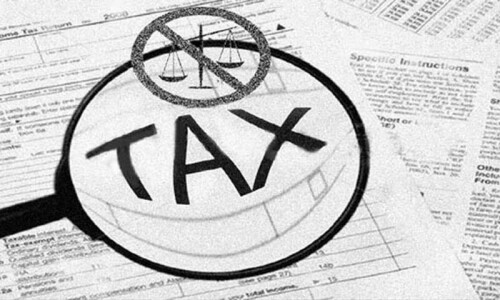ISLAMABAD: Allocation for subsidies has been increased by a staggering 225 per cent in the upcoming fiscal year with the bulk of it going to the energy sector, including Rs136 billion in terms of tariff differentials to independent power producers (IPPs).
While there has not been any increase in the food subsidies, the power sector subsidies have been enhanced significantly.
While Rs378.35bn has so far been spent against budgetary allocation of Rs149.5bn in the outgoing fiscal year, the government has proposed Rs616bn subsidies for the overall energy sector in 2021-22.
The budget documents revealed that the government has allocated Rs682bn in terms of subsidies for next fiscal year against Rs209bn projected for the outgoing 2020-21.
There was no subsidy for the IPPs in 2020-21, whereas Rs136bn has been allocated for FY22, while Rs118bn has been allocated for Power Holding Private Ltd (PHPL), while Rs40bn was spent over it in the outgoing fiscal without any allocation at the start of 2020-21.
No increase in food subsidies, but power sector’s enhanced significantly
A sum of Rs15bn has been allocated in terms of power subsidy of “Industrial Support Package”, and Rs22bn will be given to the KESC under the same package, Rs26bn as electricity subsidy for the zero rated industries.
While, Rs56bn is allocated to the KESC in terms of tariff differentials, Rs184bn is allocated in terms of inter-disco tariff differential, and Rs11.4bn for tariff differential for agri tubewells in Balochistan.
The government has allocated Rs25.6bn in terms of Wapda receivables from the former Fata districts that have been merged with the Khyber Pakhtunkhwa.
Incidentally the government has allocated only Rs2bn for electricity tariff differential for the Azad Jammu & Kashmir in FY22, but the actual spending in the same head was Rs64bn in the outgoing fiscal 2020-21.
Besides, the government has allocated Rs10bn in terms of liabilities to the oil marketing companies, Rs10bn subsidy to the LNG for providing gas on lower rates to the industrial units, and Rs6bn subsidy has been allocated for the fertilisers plants.
In the non-energy sector Rs30bn subsidy has been allocated to Naya Pakistan Housing Authority and Rs3bn in terms of markup for the Naya Pakistan.
Wheat subsidy to Gilgit-Baltistan will remain at Rs2bn and Rs7bn has been allocated for purchase of wheat stocks and maintaining its reserved stocks. The allocation for Ramazan Package through the utility stores is Rs6bn.
The federal government has reduced the subsidy for the metro bus service Islamabad from Rs2bn to Rs1bn in 2021-22.
Published in Dawn, June 12th, 2021
















































